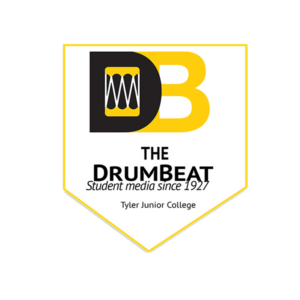Managing Editor
Tommy Crow
“It started out in smaller courses like accounting, but they’ve moved to where the biology classes have it now and the philosophy classes,” said Kayla Cantey, Textbook Manager. “The bigger classes are getting it this semester.”
TJC partnered with textbook company Follett about three years ago in hopes of better preparing students arriving to class on the first day, while also providing a cheaper alternative when buying textbooks.
A student pays for their inclusive access (online textbooks or eBooks) through their bill from Business Services rather than going directly to the bookstore to purchase physical textbooks.
“Basically, the student’s tuition pays for the textbook,” Cantey said. “This helps the students that can’t afford the book or don’t have the money at the time.”

These fees, however, do not apply to all courses at TJC. When registering for courses through Apache Access, students may or may not be automatically charged on their tuition bill for “course content” depending on whether their courses require an eBook or not. For example, a student may be charged for “ACNT 1303 Course Content $152.00” in their account balance in order to have Inclusive Access.
“I know the college is trying to do their best by finding the lowest cost for these books for us, but I don’t like that is was automatically added to our accounts,” said Tatyana Evans, student.
Students may pay the eBook fees when paying their tuition bills received from Business Services with their installment plans or upfront out of pocket. If a student was awarded a scholarship from TJC, their book fees may be covered. Not all TJC scholarships pay for inclusive access charges.
“I didn’t know about these fees until I was told about them,” Evans said. “My scholarship was put on hold because it didn’t cover my textbooks.”
Students may also pay these fees and charges if awarded a scholarship from an outside organization other than TJC. The cost of an eBook varies throughout each course and depends on which content the professor chooses.
“Professors can decide if they want their courses to go to Follett Access or not,” Cantey said.
Essentially, the idea behind inclusive access is that students with the eBook option will pay less for a textbook, and hopefully arrive to class prepared. For example, a student may pay $152.00 for an ACNT 1303 ebook through TJC while a traditional textbook costs $249.95 on Amazon.
“It is a better value cost wise for them because we have worked with the publisher to give [students] a better, lower cost textbook through an eBook format,” said Karan Sustaire, Textbook Store Manager. “Follett has a contract with TJC that we are going to supply the student needs in this building.”
In hopes that students come to class prepared, professors don’t have to worry about whether or not students have purchased their textbooks or not.
“Faculty has actually been asking this for a very long time,” said Jan McCauley, Government and History Professor. “The problem from a faculty member’s standpoint is that we have students in class that don’t have their textbooks as far up to mid-term.”
EBooks permit access through any smartphone, tablet or laptop through Canvas. Upon enrolling in courses that require eBooks, Canvas makes it accessible for students to review their eBook or content materials.
Some ebooks through inclusive access are more expensive than a traditional textbook, such as buying the required digital format textbook through the TJC Bookstore for ACNT 2311. This particular ebook costs $112.25 with the TJC Bookstore, whereas the same traditional used textbook costs only $4.12 on Amazon.
Textbook Comparison

Nevertheless, inclusive access offers more than just a textbook.
“Many of the faculty don’t just choose the textbook,” said Carol Hutson, Executive Director, Business Services. “They include other digital material, so there might be quizzes, test prep, test reviews, exams, additional study material that aren’t part of the textbook.”
Although TJC may have partnered with Follett, students are able to opt out of inclusive access to purchase their textbooks from another source such as Amazon. In order to opt out, a student has until the census date to notify their professor. After the professor contacts Business Services, inclusive access fees will be changed in the student’s tuition bill from Business Services.
Follett inclusive access offers students a more cost effective and simple way for students purchasing their books, and allows students to show up to class on the first day prepared to learn.
“Personally, I think it’s great,” Hutson said. “It gives more students the opportunity to be successful because it’s a different mode of learning. We don’t want it to be a cost burden to the students, we want it to really be beneficial to students.”



